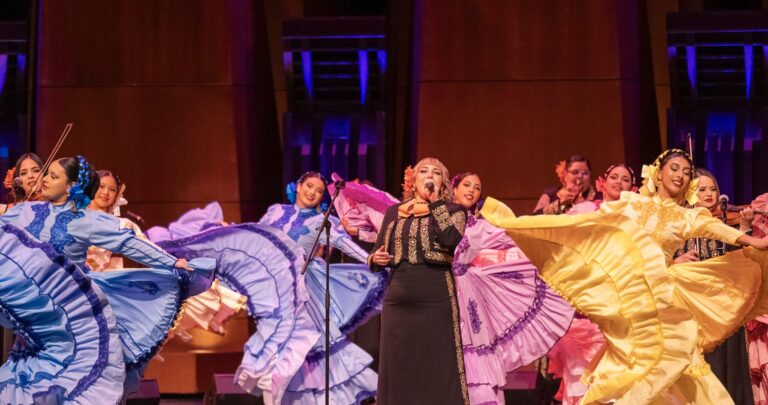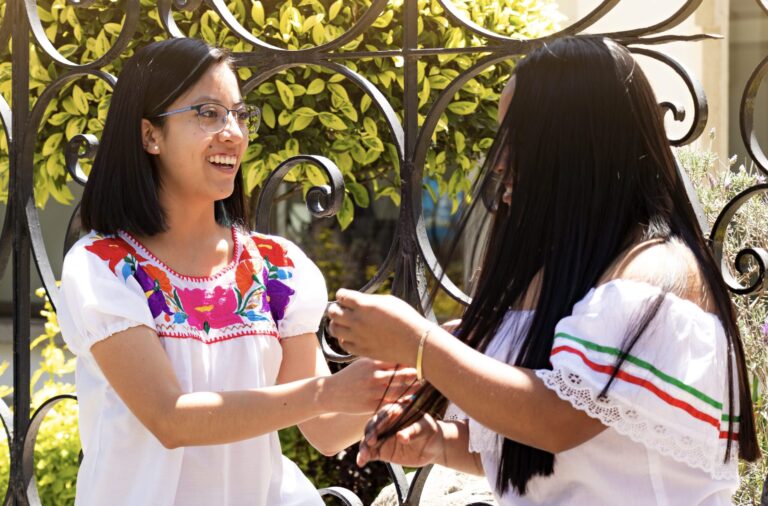By Melanie Slone
To honor all mothers, we spoke with four of them about their experiences and aspirations.

“Being a mother here is a huge challenge, a huge barrier, with many things to learn, especially with your first child… you have to learn to navigate the system,” explains Vanessa Sifuentes, a mother of two. “You may even have to change how you think. Have your values. But you do have to adapt to a very different system here.”
But being a mother in this country doesn’t mean facing things alone. There are community-based nonprofit organizations like Universidad Popular and courses like Dra. Villarreal’s workshops.
Community Support
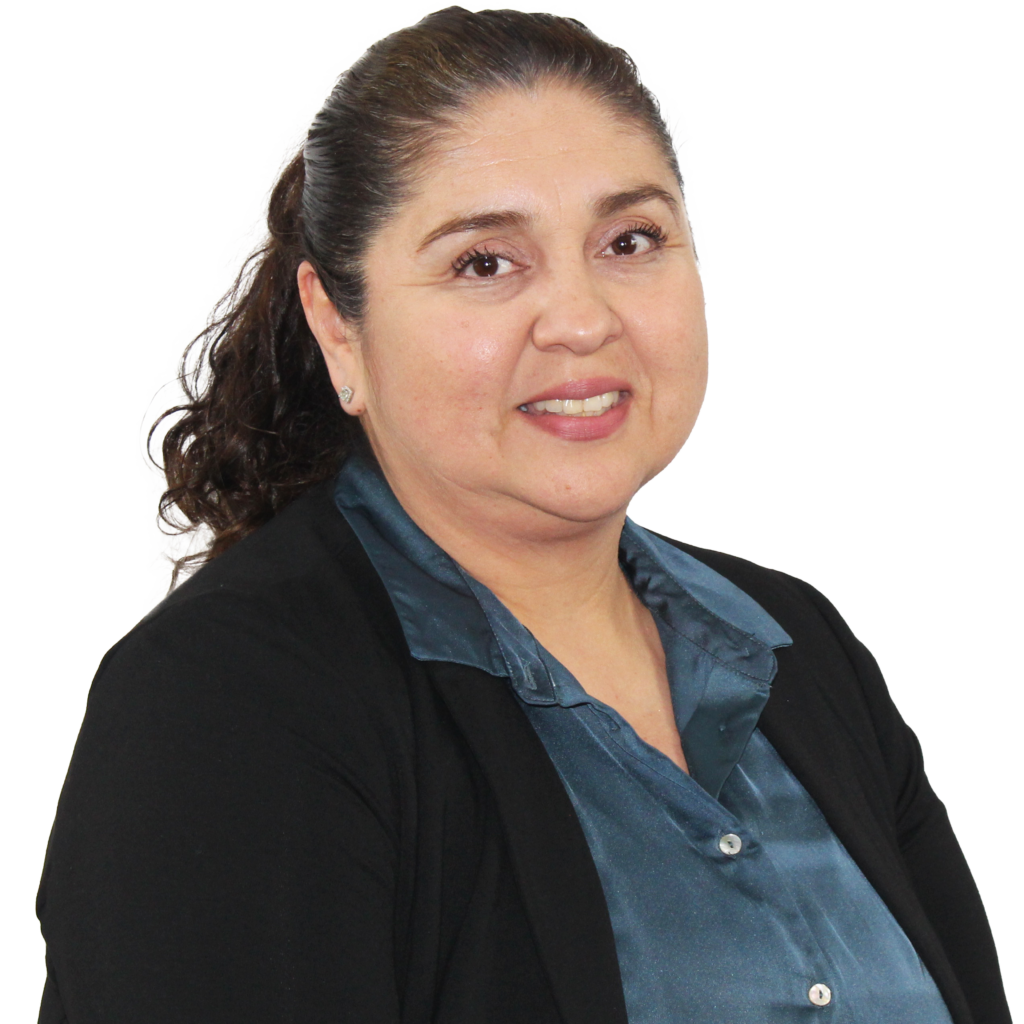
Vanessa recognizes the struggle of all mothers. “I saw that many mothers needed help, not just me.” She looked for ways to help through Universidad Popular’s programs and has passed on her passion for the community to her children.
“I think my children have learned from me the social drive or the desire to get ahead and to advocate for others… And my children are also involved here with me right now,” she comments. “I truly believe that having become involved with organizations and having my children see how I could positively impact society made a big difference.”
“I’ve realized there is also need here,” says Georgina Nájera, a mother of three who emigrated from Mexico 35 years ago. “When I got to Universidad Popular, I joined them. … It helped me a lot. Dr. Arcela is my inspiration in her work.”
She adds, “We have to work to be better, starting locally. You would like to fix the world, but you can’t. Start with your community. Contribute.”
Meanwhile, Dra. Villarreal offers a series of diploma courses called Families Learning to Be Better Families. “My program is…based on the needs I see in the community,” says Dra. Villarreal.
Education
“70% of our children’s education is provided at home and 30% is provided at school,” explains Dra. Villarreal. “I hand the responsibility for their children’s education back to the parents,” she adds.
“The most powerful thing we can leave our children, the best inheritance, is education,” says Dra. Villarreal. “It’s something that lasts a lifetime, and no human power can take it away from you. That diploma with your name on it will be forever,” she tells us.

Georgina recalls: “It was a bit difficult with many barriers: the culture clash, the language, the discrimination… labor exploitation.” But I always had education in mind. “I knew I had to fight those barriers to help my children achieve an education in the future,” she says.
“I remember one time I was driving and my son was little, the oldest, and they were going to build the college here. They were building it [Cal State San Marcos]. And I turned to look at him and said, one day, you’re going to be here. Because I’m going to make it my goal. Because you all are going to get an education.”
I feel at ease with that because we did achieve it,” despite the low-income conditions, says Georgina. “Education starts with the family, with the family unit. And then everything else follows.”
Estela Chamú, a single mother of five children, says, “I raised them. I was able to get them to college.”
Cultural education also counts. “It’s teaching them traditions, customs, Spanish… having that habit of speaking Spanish to our children so they can become bilingual,” says Dr. Villarreal.
Griselda Avelar Villanueva, a mother of three, the youngest a junior in high school, has followed this advice with her children. “Teach them our traditions, where we came from…they have to learn from our traditions.”
Vanessa fought to preserve the language. “With my first son, I had to advocate for him to learn in Spanish, and it’s really great that I made that decision. My son has a very strong foundation in Spanish.”
Family Communication
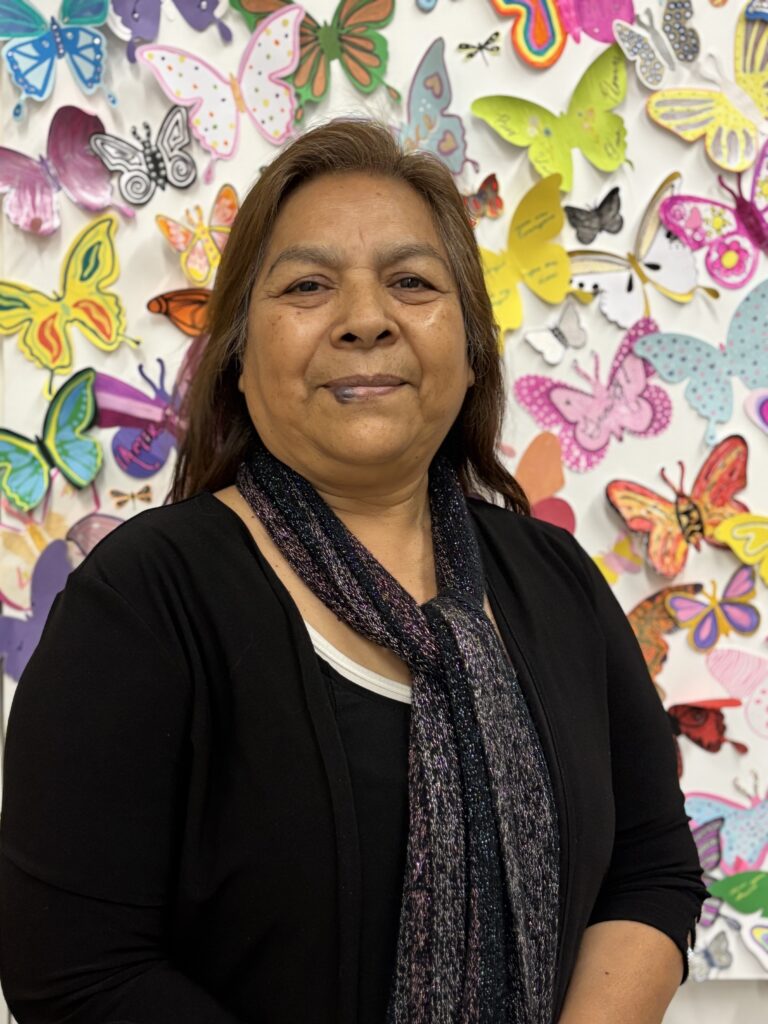
“I talk about family communication,” says Dr. Villarreal. “Nowadays, with technology, we are so close, yet so far away at the same time. We are disconnected.”
It is essential to reestablish communication, “to develop an individual relationship with each of your children. …Have in-depth conversations from the time they are young. Because if you don’t have an in-depth conversation from the time they are young, when they grow up, don’t expect to have one,” says Dr. Villarreal.
Griselda says, “Dr. Villarreal’s classes have been very helpful because with her I’ve learned that we have to make space for ourselves with our children.”
For her part, Estela says she has learned to set limits with her children, pay attention to them, get to know their friends, and gain their trust, thanks to Dr. Villarreal’s workshops. “I have learned from her…to detect when the girls are in trouble. …To be there because when we abandon our children, they often get lost.”
Drugs, Alcohol, Bullying
Dra. Villarreal teaches that drug and alcohol prevention begins in each family’s home. “I talk specifically about each drug, what’s popular and what’s being used,” she says. “I talk about bullying and violence.” There’s a legal process for reporting, she explains.
“Every action has consequences,” Griselda explains to her daughter. “I say, look at your friends, look at your surroundings because it’s nice to have friends, but you have to know how to choose your friends.”
Griselda feels she now knows the youth environment better. “I didn’t know about drugs, and now I’m learning how many things there are for young people related to drugs,” she says.
Estela experienced the problem firsthand with her oldest son. “I didn’t know he was a leader with Los Diablos. He was already selling drugs and stealing cars.” Her son spent time in jail. “He’s fine now,” she says. “He’s married and has gotten better.”
Technology
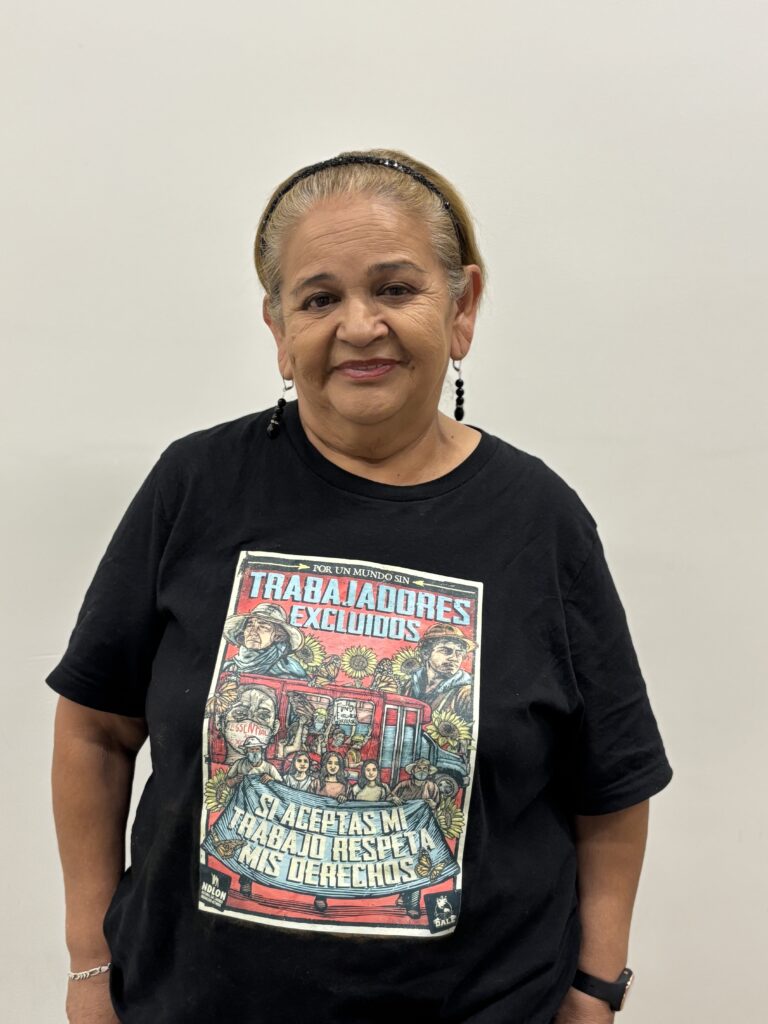
Technology is a prominent issue today. “We think that because our son is locked in his room, very quiet, he’s a good kid. He’s not causing any problems. He’s always in there. But what is he doing? Who is he socializing with? What is he watching?” asks Dra. Villarreal.
“I imagine all young people are the same, they’re just on their cell phones,” says Vanessa.
“We have to keep an eye on them because nowadays, what they’ve become absorbed in is technology, and we have to try to get them to focus more on being with their families,” says Griselda.
Finally, “We need to get involved with the community, with workshops, with information roundtables,” says Estela, “so that we can educate ourselves and help our children get ahead. They see our example and follow us.”

